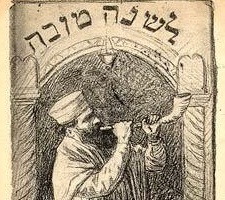
As we stand before the start of a new year, it is incumbent upon us to examine our deeds and aspire to the path of teshuvah (repentance), a path that brings redemption and healing to the world.
The Jewish people have become divided into two camps, through the categorization of Jews as Charedi (religious) and Chofshi (secular). These are new terms, which were not used in the past. Of course, not everyone is identical, especially in spiritual matters; but there was never a specific term to describe each faction. In this respect, we can certainly say that previous generations were superior to ours.
By emphasizing this categorization, we obstruct the path toward improvement and growth in both camps. Those who feel that they belong to the religious camp look down upon the secular camp. If they think about teshuvah and improvement, they immediately cast their eyes in the direction of the secularists, devoid of Torah and mitzvot. They are confident that full repentance is required by the irreligious, not by them.
The secular Jews, on the other hand, are convinced that any notion of penitence is a religious concept, completely irrelevant to their lives.
It would be better if we would all concentrate on examining our own defects, and judge others generously. It could very well be that others have treasure-troves of merits, hidden from sight. We should recognize that there exists in each camp a latent force leading toward goodness. Each camp has much to improve upon, and could learn much from the positive traits of the other camp.
Let us be known to each other by one name — Klal Yisrael. And let our prayer be fulfilled,
“וְיֵעָשּׂו כֻלָּם אֲגֻדָּה אַחַת לַעֲשׂוֹת רְצוֹנְךָ בְּלֵבָב שָׁלֵם”
“May they all become one brotherhood, to fulfill Your Will whole-heartedly” (from the High Holiday liturgy).
(Silver from the Land of Israel. Adapted from Mo'adei HaRe’iyah, p. 58, originally published in the journal HaYesod, 1933.)





